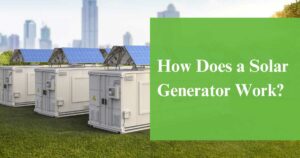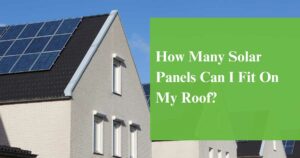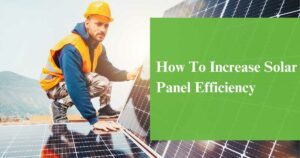Renogy 100-Watt 12-Volt Flexible Monocrystalline Solar Panel Review
Written by qualified solar engineer Aniket. Last updated:
Page Contents
- Extremely lightweight
- Excellent build quality
- High degree of flexibility
- Highly durable
Max. Power: 100W
Max. power voltage: 18.9V
Max. power current: 5.29A
Dimensions: 47.9 x 21 x 0.1 in (121.66 x 53.34 x 0.25 cm)
Weight: 4 lbs. (1.8 kg)
Our Verdict
The age of flexible solar panels hasn’t completely arrived yet, but Renogy’s foray into this department is praiseworthy. Their 100-watt 12-volt panel is an ultra-light panel that redefines portability and even durability. The panel can be mounted on non-flat surfaces such as arc-shaped roofs or boat/yacht profiles. Its IP68 rating makes it largely weather-proof. At just 4 lbs., this is one of the lightest 100W panels in the world.
In this Renogy 100-watt 12-volt flexible monocrystalline solar panel review, we will cover all the aspects that make this panel unique. The technology of flexible cells is significantly costlier than traditional cells, and you may opt for a regular panel if the super-light and thin aspects aren’t among your serious needs. If you’re looking for more options or different features, you can take a look at these product reviews.
Compatibility
This flexible panel is compatible with everything that its traditional counterpart is compatible with. Rated at 18.9 volts of maximum power voltage, it can supply power to all 12V appliances. It is best suited to charge battery power stations such as Renogy’s Phoenix or Lycan. Multiple panels can be used for greater power supply or faster charging by connecting together. The MC4 connectors make this chaining fast, quick, and safe.
Durability
By getting rid of the heaviest and weakest component, i.e. the glass, Renogy has increased the durability of this panel multifold. There is no more the fear of having the glass shattered or cracked due to falls or other impacts. The panel comes with commendable wind and snow load ratings of 2400 and 5400 pascals respectively. Besides the absence of glass, the lamination material quality is another aspect that adds to the durability. The junction boxes, like the rest of the panel, are totally water-proof, a necessary feature.
Ease Of Use
Roll it and tuck it under your arm, hold it over your back, or just throw it in the trunk of your car. The panel is surprisingly easy to carry. As far as mounting is concerned, it is even more delightful. You can lay it down like a mat or hang it on your tent; no more mounting brackets and tool-kits required. The MC4 connectors make the connecting and disconnecting equally simple.
Features
The flexibility might be the feature that steals the show completely, but it is not the only feature that deserves mention. The 100W flexible monocrystalline panel by Renogy is a thoughtfully built panel. It has an IP68 water-proof rating and the water-proof junction boxes are placed on the front side, making it possible to paste the panels on almost all kinds of surfaces. The front surface of the thin lamination has a specially designed dotted surface that absorbs maximum sunlight to get the best power generation.
Design
Despite the unremarkable white, black, and blue colors, the panel is an eye-catching piece of tech, thanks to its super-thin section and flexible design. It has a typical 9×4 cell matrix with 2 bus-bar cells neatly arranged together. On the top of the front side are two relatively thin but robust junction boxes and two cables with MC4 connectors at their ends. One of the cables is significantly shorter than the other. The rear is more or less plain white, and has a slightly rough surface for better pasting using silicon or other adhesives.
What We Like
Flexible panels are a very specific area of technology that isn’t well established, and it is not easy to launch a near-perfect product. Renogy has done its best in offering a product with all the essential features one could expect from a flexible panel. It is light, tough, simple to use, and designed to last.
Pros:
- Highly flexible body
- Ultrathin section
- Extremely light weight and durable
Cons:
- Higher cost of flexible cells
Other Portable Solar Panels You May Like
We hope you liked this article. Please rate it or leave us a comment.
Average rating 4.3 / 5. Vote count: 4
No votes so far! Be the first to rate this post.









